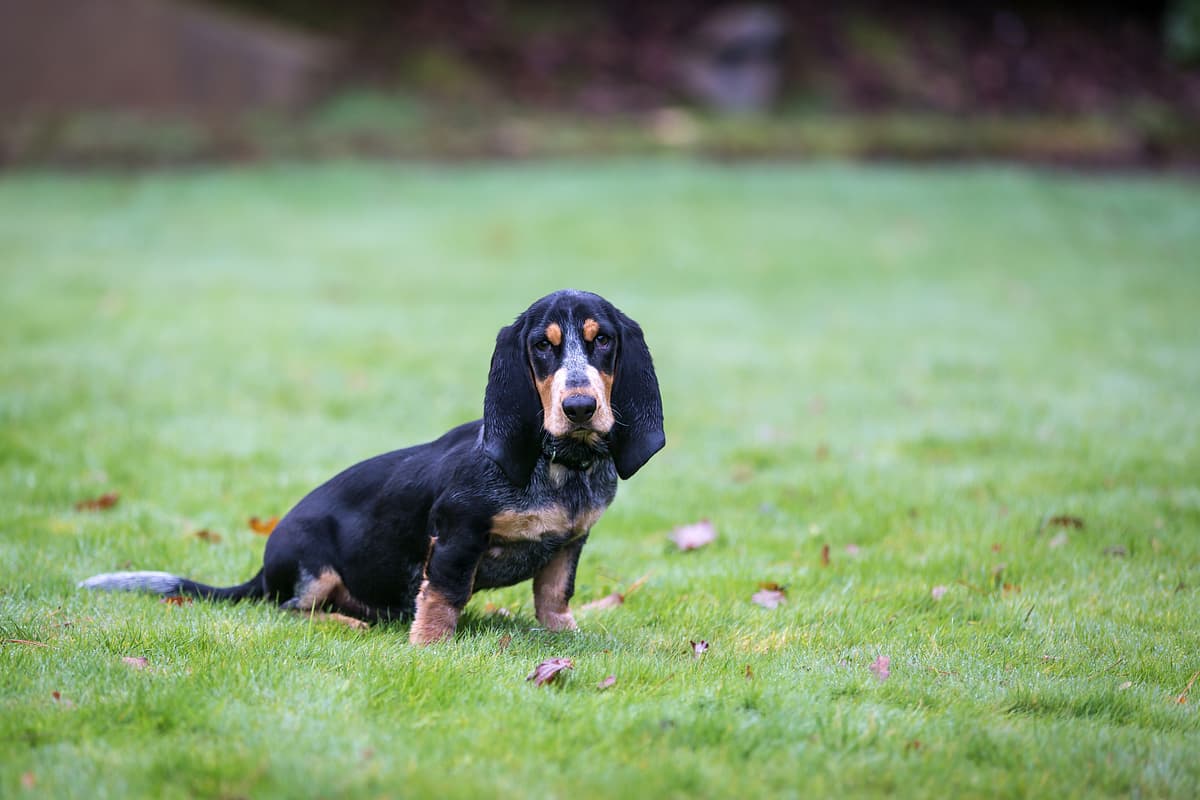Blue Gascony Basset vs English Bulldog
Discover the differences between Blue Gascony Basset and English Bulldog to make the best choice for your situation.
Try different breeds

Blue Gascony Basset
Calm, affectionate, and sociable, this breed stands out for its deep voice and soulful eyes. Blue Gascony Bassets make loyal companions with a gentle, steady presence.

English Bulldog
Stocky, courageous, and affectionate, this breed charms with its wrinkled face and calm nature. Loyal and gentle, it thrives as a loving family companion.
Quick comparison
Medium
16–18 kg
Short, dense
10–13 years
14–16 kg
Moderately active
Medium
23–25 kg
Short, smooth
8–10 years
18–23 kg
Low activity needs
Personality & behavior
Compare the personality traits and behavioral characteristics of both breeds.
Blue Gascony Basset
Affectionate with family, generally sociable with others
Reasonably smart, responds well to consistent training
Moderate activity needs, enjoys regular exercise
Likes interactive play, but not overly excitable
Adjusts to new situations with some patience
English Bulldog
Affectionate and gentle with family and children
Learns basic commands with some patience
Prefers lounging over vigorous physical activity
Enjoys play but tires fairly quickly
Adjusts well to most living environments
Care needs
Exercise, grooming, and daily care requirements
Blue Gascony Basset
Ear infections, intervertebral disc disease
English Bulldog
Brachycephalic syndrome, skin fold infections
Suitability
How well each breed fits different living situations and families
Blue Gascony Basset
Moderately suitable
Needs patient, consistent training from inexperienced handlers
Not ideal
Needs space and regular outdoor exercise to stay content
Somewhat suitable
Enjoys moderate activity but not overly energetic or demanding
Good companion
Tolerant and gentle with children when properly socialized
Generally compatible
Usually gets along with other pets if socialized early
Prone to separation anxiety
Dislikes being left alone for extended periods and may become vocal
English Bulldog
Good option
Easygoing, low-maintenance nature suits owners with limited dog experience
Excellent fit
Moderate exercise needs and calm demeanor work well in small living spaces
Not ideal
Low stamina and breathing issues make them unsuited for high-activity lifestyles
Very suitable
Gentle, patient, and tolerant with young children when properly socialized
Usually compatible
Generally sociable but may need guidance with other pets, especially dogs
Not recommended
They struggle with long periods alone and are prone to separation anxiety
Breed strengths
What each breed excels at and their best qualities
Blue Gascony Basset
- Adaptable to various living environments
- Strong scent-tracking abilities
- Gentle and affectionate with families
- Generally good with other dogs
- Loyal and steady temperament
English Bulldog
- Affectionate with family members
- Generally good with children
- Low exercise requirements
- Minimal grooming needs
- Adaptable to apartment living
Challenges & considerations
Potential challenges and considerations for each breed
Blue Gascony Basset
- Prone to stubbornness during training
- Needs regular exercise to prevent boredom
- Can be vocal when left alone
- Requires thorough ear cleaning to prevent infections
- May chase small animals due to prey drive
English Bulldog
- Prone to respiratory problems
- High risk of overheating
- Susceptible to skin infections
- Can be stubborn during training
- Tends to drool frequently
Ready to choose your perfect breed?
Learn more about each breed or compare other breeds to find the perfect match for your lifestyle.
Discover more helpful tools
Make use of our other free tools to get the most out of your pet experience
